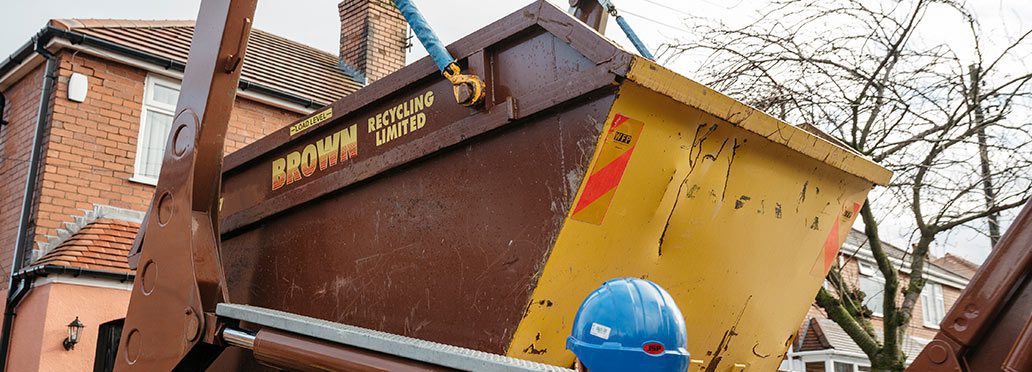
The Health & Safety Measures Behind Your Skip Hire
The health and safety of you, the public and our team here at Brown Recycling is of the utmost importance to us. When it comes to hiring a skip, there are numerous health and safety aspects involved in the process to protect all parties.
It can often seem overwhelming when the term ‘health & safety’ gets mentioned, but there’s no need to panic – this month we’ll explain the different facets to be considered with your skip hire and who is responsible for them.

Getting a skip licence
When hiring a skip, it’s always important to first establish where you’ll have your skip placed. If you’ve no room for a skip on your property, that will mean having it placed on a pavement or public highway.
This means there are risks to the general public and a licence is required to ensure you’re not falling foul of the law. Your local council will be in charge of providing skip licences, but each council does things differently – at Brown Recycling we will apply for the licence, saving you the additional time and hassle.
A skip licence generally ensures the following criteria will be met (rules may differ by region):
- Your skip won’t block pavements or entrances and exits
- Your skip won’t block access to utility points
- Your skip won’t be within 15m of a junction
- A parking suspension is in place
Check with your skip hire company to find out who is responsible for acquiring a licence for your skip hire when it will be placed on a pavement or road.
Night Safety
If your skip is going to be on a public highway overnight, there are other things you’ll need to do in order to adhere to health and safety. The most important thing to do is set up lights and markings which will make it clear to those driving in the dark that there is a skip in the road. Items you will require include (rules may differ by region):
- Traffic cones
- Flashing safety lamps
- Reflective strips
- Contact details of the hire company
The exact rules will depend on your location and your skip hire company may be able to assist you with these items. It is important that you factor these in, especially over the course of a hire term.
Hazardous Waste
The waste you put into the skip is itself a health and safety issue. Since it will be open to the surrounding environment, and will also be collected by staff from the company you hire from, it is important that hazardous waste is not placed in your skip.
There are a number of items which you are prohibited from placing in a skip due to environmental factors, including:
- Chemicals & pesticides
- Asbestos
- Batteries
- Electrical items
- Medical waste
- Fluorescent tubes
- Tyres
- Gas cylinders
- Light bulbs
- Oils & paints
- Creosote/CCA Treated Fence Panels
- Telegraph Poles
- Railway Sleepers
- POPs (Persistent Organic Pollutants) such as upholstered furniture
Any of these items puts both the public, as well as skip hire staff at risk, not to mention that they contaminate general waste, making it harder to recycle and dispose of your waste. To find out if your chosen skip hire company will accept a particular type of waste when you’re unsure, simply contact them to clarify.
If you require more details about health and safety when hiring a skip – whether your a homeowner or a commercial outfit – we’ll be happy to help. Simply contact the team at Brown Recycling to find out if we can help with permits and for a full list of what you can and can’t place in your skip.
This website uses cookies to enhance your browsing experience and deliver personalised ads. By clicking “Accept All Cookies”, you agree to the storing of cookies on your device to enhance site navigation, analyse site usage, and assist in our marketing efforts.



